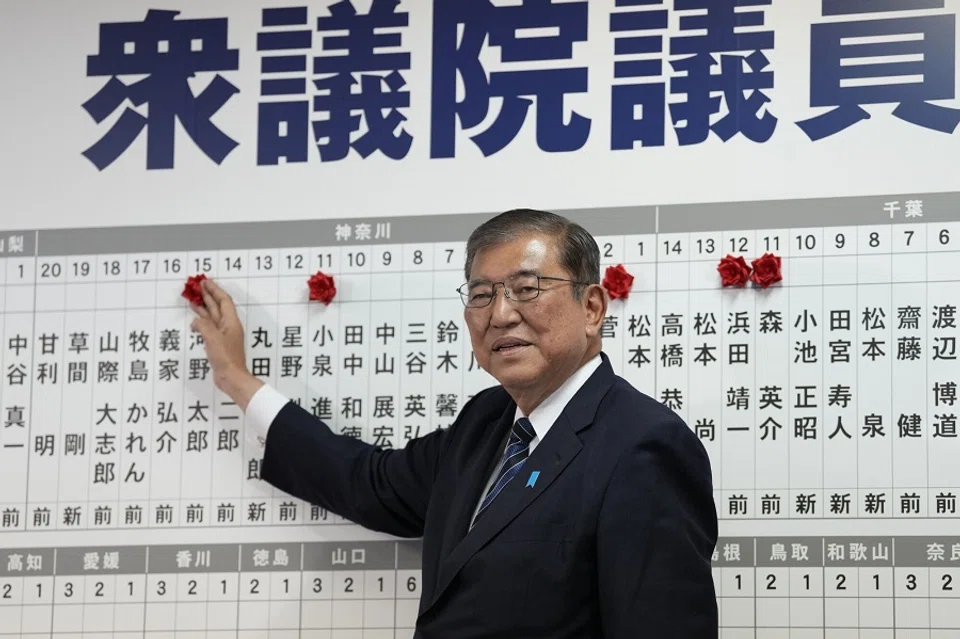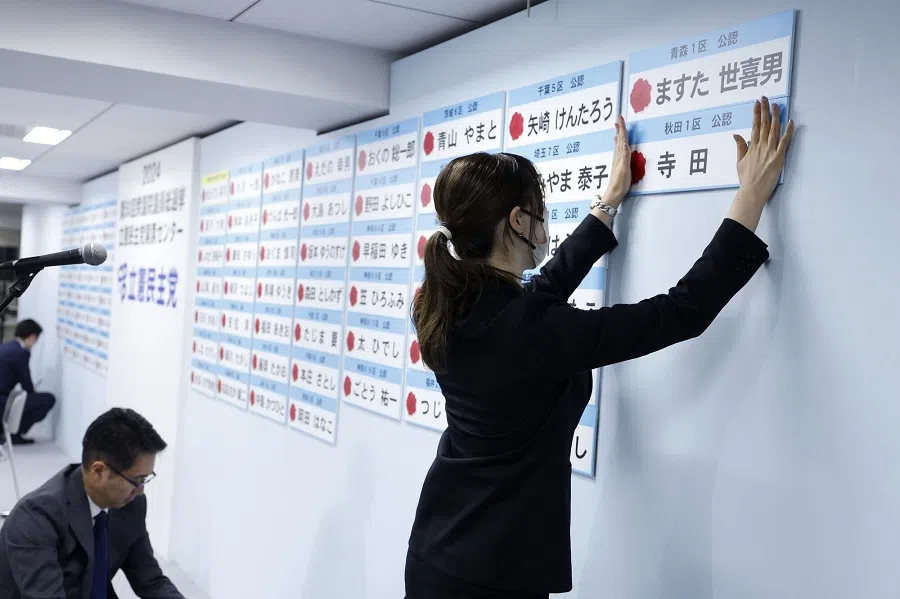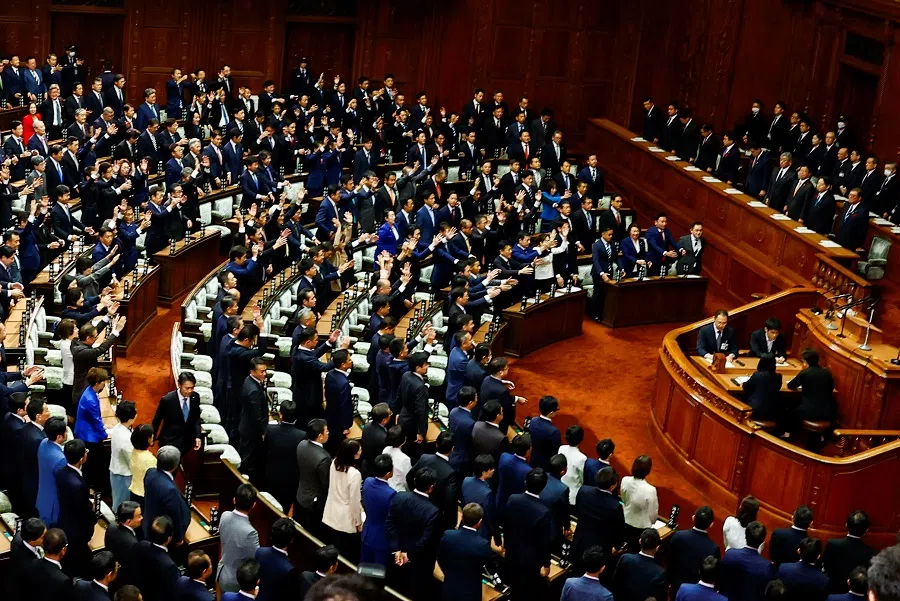Will Ishiba’s minority rule destabilise Japanese politics?
Japanese Prime Minister Shigeru Ishiba may lead a minority government in the wake of the Liberal Democratic Party (LDP) losing its majority in the elections. In foreign and security policy at least, LDP policies are likely to remain in place, says Japanese academic Shin Kawashima.

Japan’s ruling Liberal Democratic Party (LDP) suffered a significant setback in the lower house elections, falling short of the 233 seats needed for a majority, losing over 50 seats, and ending with just 191.
Despite gaining 24 seats from its coalition partner Komeito, the ruling coalition secured only 215 seats, still below the majority threshold. Meanwhile, the opposition made notable gains, with the Constitutional Democratic Party of Japan (CDPJ) increasing its seats by 50 to reach 148. The Japan Innovation Party (JIP) captured 38 seats and the Democratic Party for the People (DPP) secured 28.
During this election, members of the Seiwa Political Analysis Council (Seiwa Kai, formerly the Shinzo Abe faction), under scrutiny for political funding issues, ran as independents. Three elected members — Hiroshige Seko, Koichi Hagiuda, and Yasutoshi Nishimura — along with three others, plan to rejoin or merge with the LDP, raising the LDP’s total to 197 seats and the ruling coalition’s to 221.
Since the ruling coalition has already secured 221 seats, it is likely that the LDP will achieve a majority in the runoff.
Possibility of opposition coalition is low
The prime ministerial nomination election will be held on 11 November. If the opposition parties can unite their seats, they will have a majority, so the possibility of a change of government is not zero.
At present, however, the possibility of an opposition coalition is low. This is because the opposition DPP has declared that it will vote for its leader, Yuichiro Tamaki, even in the final runoff of the prime ministerial nomination election.

With the DPP’s 28 seats excluded from the total 465 seats, the remaining 437 seats require a majority of 219. Since the ruling coalition has already secured 221 seats, it is likely that the LDP will achieve a majority in the runoff.
Working with opposition parties on economic policies
For this reason, it is currently believed in Japan that the LDP’s Shigeru Ishiba administration will maintain power as a minority ruling party. There are concerns that this could destabilise the political situation or lead to fluid politics.
The ruling party is 12 seats short of a majority. Therefore, the ruling party is likely to consider which opposition party to cooperate with on each policy issue, taking into account that the JIP and DPP have more than 12 seats.
Given the economic policy challenges faced by the Ishiba administration, it might consider partnering with the DPP and others, incorporating their policy proposals into legislation in exchange for support.
For example, if the LDP were to explore cooperation with the DPP on issues such as taxation, it would likely include the DPP’s proposal to increase the working generation’s income in its legislation to secure a majority.
Given the economic policy challenges faced by the Ishiba administration, it might consider partnering with the DPP and others, incorporating their policy proposals into legislation in exchange for support.
Foreign policy likely to be in line with LDP policies
What about foreign and security policy? In this area, it seems that the environment is conducive to implementing the ruling party’s policies.
First of all, it should be noted that the election platform of the main opposition party, the CDPJ, especially in terms of economic security and economic diplomacy, states: “From the perspective of economic security, we will promote effective security policies such as strengthening supply chains, ensuring the superiority of advanced technologies, and strengthening infrastructure security, while respecting a ‘free and open economy’ and ‘free economic activities by private actors’ to the greatest extent possible.
“We will strengthen intellectual property protection, information security, corporate governance, etc. in a variety of fields, and take the lead in formulating international rules in economic affairs in a wide range of fields, and take the lead in formulating international rules in economic fields such as communications, digital technology, clean energy technology, and space, and formulate an ‘economic security strategy’ to establish Japan’s superiority and promote comprehensive national power.”
Adjustments and alignment
This is not much different from the LDP’s policy. In fact, on economic security, it is even possible to cooperate with the largest opposition party.
Opposition parties may also request that their views be considered to assert their influence, but in many cases, adjustments can be achieved.

Secondly, the JIP generally supports a realistic approach to diplomacy and security policy, making cooperation with the LDP, particularly the Ishiba administration, highly possible.
While significant political coordination will be necessary, the National Security Secretariat (NSS) and similar organisations will lead efforts to collaborate with opposition parties like the CDPJ and JIP on foreign and security policy.
Opposition parties may also request that their views be considered to assert their influence, but in many cases, adjustments can be achieved.
Prime Minister Ishiba will be travelling abroad soon. There is a possibility that a Japan-China summit with President Xi Jinping will be held at the APEC meeting in Peru. Ishiba will initially assert his influence through diplomatic efforts and then consider collaborating with opposition parties on a case-by-case basis during the ordinary Diet session in January 2025.





